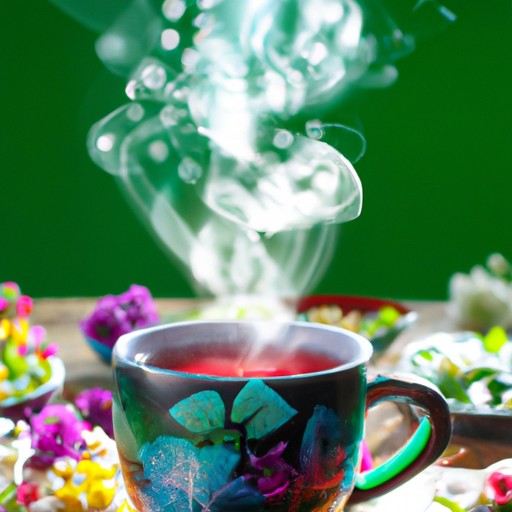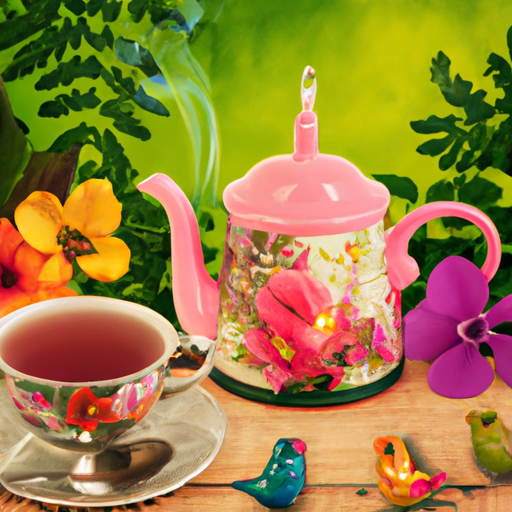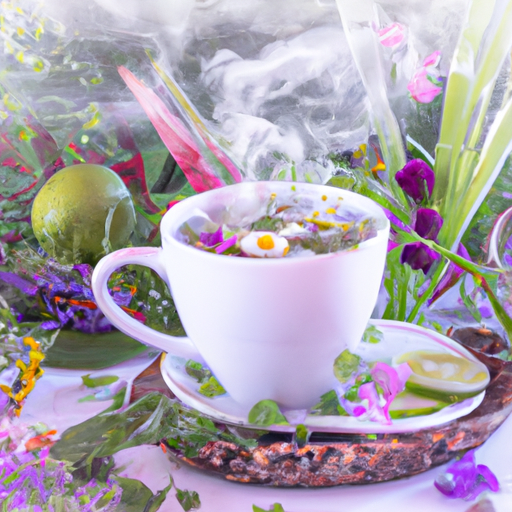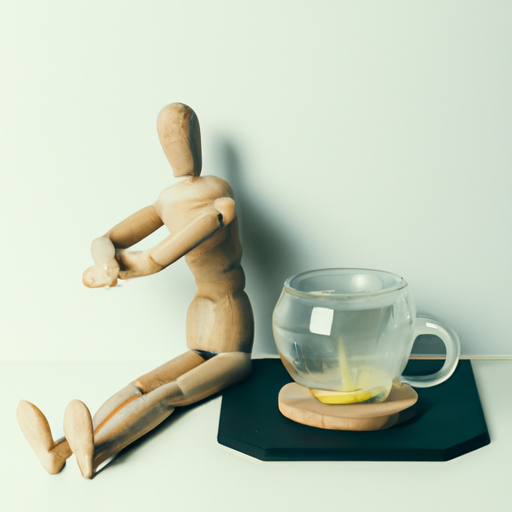It’s funny how life works sometimes. Just when you think you have it all figured out, you stumble upon something that has the power to change everything.
That’s exactly what happened to me when I discovered the world of herbal tea remedies. It was a serendipitous moment, like the universe was whispering secrets into my ear. And let me tell you, these remedies are nothing short of magical.
Herbal tea remedies have been used for centuries to support various aspects of our health and well-being. From aiding digestion to relieving stress, promoting better sleep to boosting our immune systems, these natural concoctions have the power to transform our lives.
But with so many options out there, how do you know which herbal tea remedy is right for you? That’s where I come in. Through my research and personal experience, I’ve delved into the world of herbal teas to bring you the most effective and evidence-based remedies for a wide range of health concerns.
So sit back, relax, and let me guide you on a journey to discovering the perfect herbal tea remedy for your needs. Your body will thank you, and your soul will be forever grateful.
Let’s dive in!
Key Takeaways
- Herbal teas like chamomile, peppermint, and ginger can soothe digestive issues
- Chamomile and lavender teas are known for promoting better sleep
- Herbal teas like chamomile, lavender, and lemon balm can provide stress relief
- Echinacea, elderberry, ginger, and green tea can boost the immune system
Digestive Health
If you’re looking for a natural way to improve your digestive health, herbal tea is the remedy you need! Our gut health plays a crucial role in our overall well-being, and herbal teas can provide relief from stomach discomfort.
Certain herbs like chamomile, peppermint, and ginger have been used for centuries to soothe digestive issues. Chamomile tea, for example, has anti-inflammatory properties that can help reduce bloating and indigestion. Peppermint tea can relax the muscles of the gastrointestinal tract, easing stomach pain and cramps. Ginger tea is known for its ability to improve digestion and relieve nausea.
By incorporating these herbal teas into your daily routine, you can promote a healthy gut and alleviate digestive discomfort.
Now, let’s explore how herbal tea can also provide stress relief.
Stress Relief
Feeling stressed? Try incorporating a daily ritual like meditation or yoga to help you find relief. These stress management techniques have been proven to reduce anxiety and promote a sense of calm. In addition to these practices, herbal teas can also provide natural anxiety remedies. Certain herbs, such as chamomile, lavender, and lemon balm, have been used for centuries to promote relaxation and alleviate stress. Incorporating these herbal teas into your daily routine can help you find a moment of tranquility amidst the chaos of everyday life. To further illustrate the benefits of herbal teas for stress relief, here is a table showcasing some of the most popular stress-relieving herbal teas and their key properties:
| Herbal Tea | Key Properties |
|---|---|
| Chamomile | Calming, promotes sleep |
| Lavender | Relaxing, reduces tension |
| Lemon Balm | Soothing, eases nervousness |
| Peppermint | Refreshing, relieves muscle tension |
| Valerian Root | Sedative, aids in sleep |
By incorporating these herbal teas into your daily routine, you can effectively manage stress and promote overall well-being. Now, let’s explore how herbal teas can also support a good night’s sleep.
Sleep Support
Having trouble sleeping? Incorporating daily rituals like meditation or yoga can help you find the peaceful slumber you’ve been longing for.
In addition to these relaxation techniques, there are also natural remedies in the form of herbal teas that can support your sleep. Chamomile tea, for example, has been used for centuries as a natural sleep aid due to its calming properties. Its gentle and soothing aroma promotes relaxation, helping you drift off into a deep sleep.
Another popular herbal tea for sleep support is lavender tea. Lavender is known for its ability to reduce anxiety and promote relaxation, making it an excellent choice for those struggling with insomnia.
By incorporating these natural remedies and relaxation techniques into your bedtime routine, you can create a peaceful environment for a restful night’s sleep.
Transitioning into the subsequent section about immune boosting, it’s important to note that a good night’s sleep is crucial for a healthy immune system.
Immune Boosting
Boosting your immune system is like giving your body an extra line of defense against illness and disease. When it comes to natural remedies for cold and flu prevention, herbal teas are a great option for strengthening your immune system.
Here are four herbal teas that can help support your body’s defenses:
-
Echinacea tea: Known for its immune-boosting properties, echinacea tea can help prevent and reduce the severity of colds and flu.
-
Elderberry tea: Packed with antioxidants, elderberry tea is a powerful immune system booster that can help fight off viruses and infections.
-
Ginger tea: With its anti-inflammatory and antioxidant properties, ginger tea can help strengthen your immune system and alleviate symptoms of cold and flu.
-
Green tea: Rich in catechins, green tea can enhance immune function and protect against viral and bacterial infections.
By incorporating these herbal teas into your routine, you can give your immune system the support it needs to stay strong and healthy.
Now, let’s move on to the next topic: skin health.
Skin Health
Nourish your skin from within by indulging in a daily skincare routine that includes natural ingredients and gentle exfoliation. Taking care of your skin is essential for maintaining its health and radiance.
When it comes to natural remedies for skin health, herbal teas can be a great addition to your routine. Certain teas, like green tea and chamomile, are known for their antioxidant properties, which help fight against free radicals and reduce signs of aging. These teas can also soothe inflammation and promote a clear complexion.
Incorporating herbal teas into your skincare routine is an easy and effective way to enhance your skin’s natural glow.
As we transition into the next section about weight management, it’s important to remember that taking care of your skin goes hand in hand with maintaining a healthy weight.
Weight Management
Losing weight can be challenging, but incorporating healthy eating habits and regular exercise into your routine can help you achieve your weight management goals. Along with these lifestyle changes, herbal tea remedies can provide additional support for weight loss.
Many herbal teas contain natural ingredients that can help boost your metabolism and aid in weight management. Here are three herbal teas that are known for their weight loss benefits:
- Green tea: Rich in antioxidants and catechins, green tea can increase fat oxidation and boost metabolism.
- Oolong tea: This traditional Chinese tea has been shown to enhance fat burning and improve weight loss.
- Ginger tea: Known for its thermogenic properties, ginger tea can increase calorie burning and help control appetite.
Incorporating these herbal teas into your daily routine can be a natural and effective way to support your weight management efforts. Transitioning into the next section about overall wellness, it’s important to remember that weight management is just one aspect of maintaining a healthy lifestyle.
Overall Wellness
Transitioning into the next section, it’s important to prioritize overall wellness and embrace a holistic approach to maintaining a healthy and fulfilling lifestyle.
Mindfulness practices and a holistic approach can greatly benefit our overall well-being. Taking time for ourselves and being present in the moment can help reduce stress and promote mental clarity. Incorporating mindfulness practices such as meditation, deep breathing exercises, and yoga can contribute to a sense of balance and harmony.
Additionally, adopting a holistic approach means considering all aspects of our health, including physical, mental, emotional, and spiritual well-being. This involves nourishing our bodies with nutritious foods, engaging in regular physical activity, nurturing our relationships, and finding ways to connect with our inner selves.
By prioritizing overall wellness and embracing a holistic approach, we can achieve a state of optimal health and live a more vibrant and fulfilling life.
Frequently Asked Questions
What are the potential side effects or risks associated with using herbal teas for digestive health?
Potential side effects of herbal teas for digestive health may include allergic reactions, upset stomach, and interactions with medications. Risks associated with using herbal teas include misidentification of herbs, lack of regulation, and potential harm to certain individuals.
Can herbal teas for stress relief be safely consumed alongside prescription medications for anxiety or depression?
Herbal teas for stress relief can generally be safely consumed alongside prescription medications for anxiety or depression. However, it is important to consult with a healthcare professional to ensure there are no potential interactions.
Are there any specific herbal teas recommended for promoting deep and restful sleep?
To promote deep and restful sleep, I recommend herbal teas for relaxation and insomnia. These soothing concoctions can calm the mind and lull you into a peaceful slumber, allowing you to wake up refreshed and rejuvenated.
Can herbal teas for immune boosting be effective in preventing or treating specific illnesses, such as the common cold or flu?
Herbal teas can be effective in preventing and treating specific illnesses like the common cold or flu. Certain teas, such as those containing elderberry or echinacea, have immune-boosting properties that can support overall wellness and help alleviate symptoms.
Are there any herbal teas that have been proven effective in improving skin conditions such as acne or eczema?
I’ve researched the effectiveness of herbal teas for improving skin conditions like acne and eczema. While there are claims about certain herbal teas benefiting the skin, more evidence-based research is needed to confirm their effectiveness as natural remedies.
Conclusion
After exploring the diverse benefits of herbal tea remedies, it becomes clear that these natural concoctions hold the key to unlocking our overall wellness. Like a soothing melody, they harmonize our digestive health, relieve stress, and support restful sleep.
With each sip, they fortify our immune system and nourish our skin, unveiling a radiant glow. As we indulge, they gently guide us towards our weight management goals.
Let us embrace the power of herbal teas, and let their enchanting properties restore balance and vitality to our lives.










